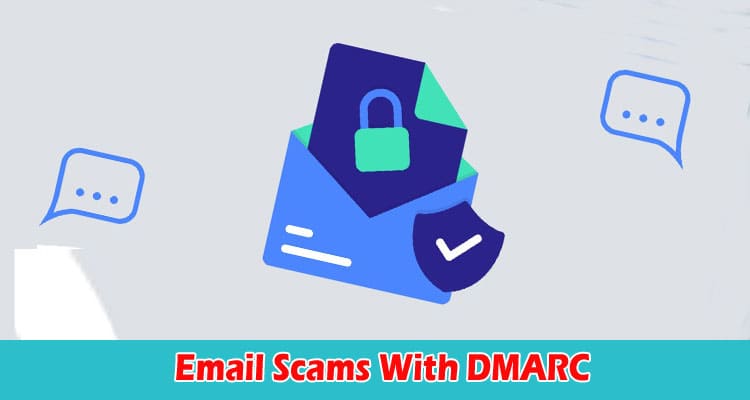Email is an integral part of life. You may rely on it for communication, information sharing, and even financial transactions. Unfortunately, the convenience of email also makes it a prime target for cybercriminals.
Email scams, such as phishing attacks and spoofed emails, have become increasingly sophisticated, posing a significant threat to individuals and businesses alike. One powerful tool that may help protect your customers from these email scams is DMARC (Domain-based Message Authentication, Reporting, and Conformance).
The Rising Threat of Email Scams
Email scams have evolved from simple, poorly crafted messages to highly convincing and targeted attacks.
Cybercriminals often use various tactics to deceive recipients, such as impersonating legitimate organizations, using familiar logos and branding, and crafting compelling narratives to prompt recipients to take action. These actions might include clicking on malicious links, downloading infected attachments, or disclosing sensitive information.
The consequences of falling victim to email scams may be severe. Individuals may suffer financial losses, identity theft, or damage to their personal and professional reputations. For businesses, email scams may lead to data breaches, financial losses, and reputational damage that might be challenging to recover from.
Understanding DMARC
DMARC is an email authentication protocol that helps organizations combat email fraud and protect their customers from email scams. It allows senders to specify how their emails should be handled if they fail authentication checks.
DMARC leverages two existing authentication protocols, SPF (Sender Policy Framework) and DKIM (DomainKeys Identified Mail), to verify the authenticity of an email’s sender.
Here’s how DMARC works:
- Authentication – DMARC requires senders to implement SPF and DKIM, which authenticate the sender’s identity and ensure the email hasn’t been tampered with during transit.
- Policy – Senders publish a DMARC policy that specifies how receivers should handle emails that fail authentication checks. This policy may instruct receivers to quarantine the email, reject it outright, or simply monitor for suspicious activity.
- Reporting – DMARC also provides valuable reporting mechanisms that give organizations insight into how their email domains are used. These reports may help organizations identify unauthorized senders and potential phishing attempts.
Benefits of DMARC for Your Customers
Implementing DMARC may enhance your customers’ protection against email scams in several ways:
Reduced Phishing Attacks
DMARC may help block phishing attacks by ensuring that only legitimate emails from authorized senders are delivered to your customers’ inboxes. Emails from malicious senders might be intercepted and either quarantined or rejected, preventing recipients from falling victim to phishing attempts.
Enhanced Trust
When your customers receive emails with your domain name in their inboxes, they could have greater confidence that these messages are genuinely from your organization. This enhanced trust may improve customer loyalty and reduce the risk of customers unknowingly engaging with scam emails.
Real-time Reporting and Visibility
DMARC provides valuable reporting on email activity, including information about legitimate and fraudulent uses of your domain. This visibility allows you to proactively monitor and respond to potential email scams, protecting your customers and your brand’s reputation.
Improved Brand Reputation
Implementing DMARC may demonstrate your commitment to email security and protecting your customers from email scams. This proactive approach might enhance your brand’s reputation and build customer trust.
Customizable Policies
DMARC policies are customizable to fit your organization’s specific needs. You may choose to quarantine or reject suspicious emails, allowing you to strike a balance between security and flexibility.
Bottom Line: Email Scams are Harmful
Email scams are a pervasive threat in today’s digital landscape, but organizations may take proactive steps to protect their customers.
DMARC is a powerful tool that enhances email security by authenticating sender identities and providing customizable policies for handling suspicious emails. By implementing DMARC, you may not only protect your customers from email scams but also strengthen their trust in your brand.
Consider staying ahead of cybercriminals and safeguard your customers by implementing DMARC. Your customers’ security and your brand’s reputation may depend on it.







